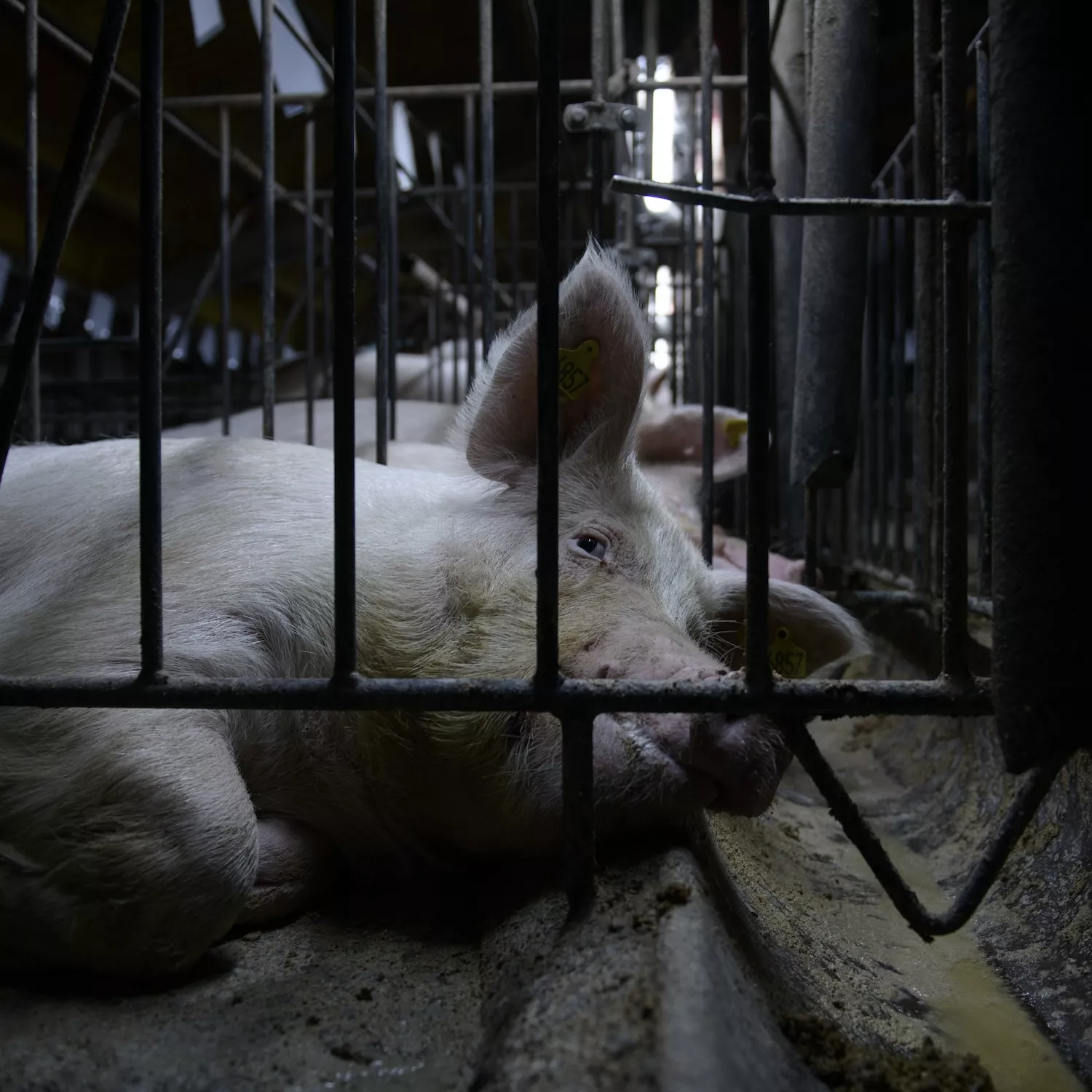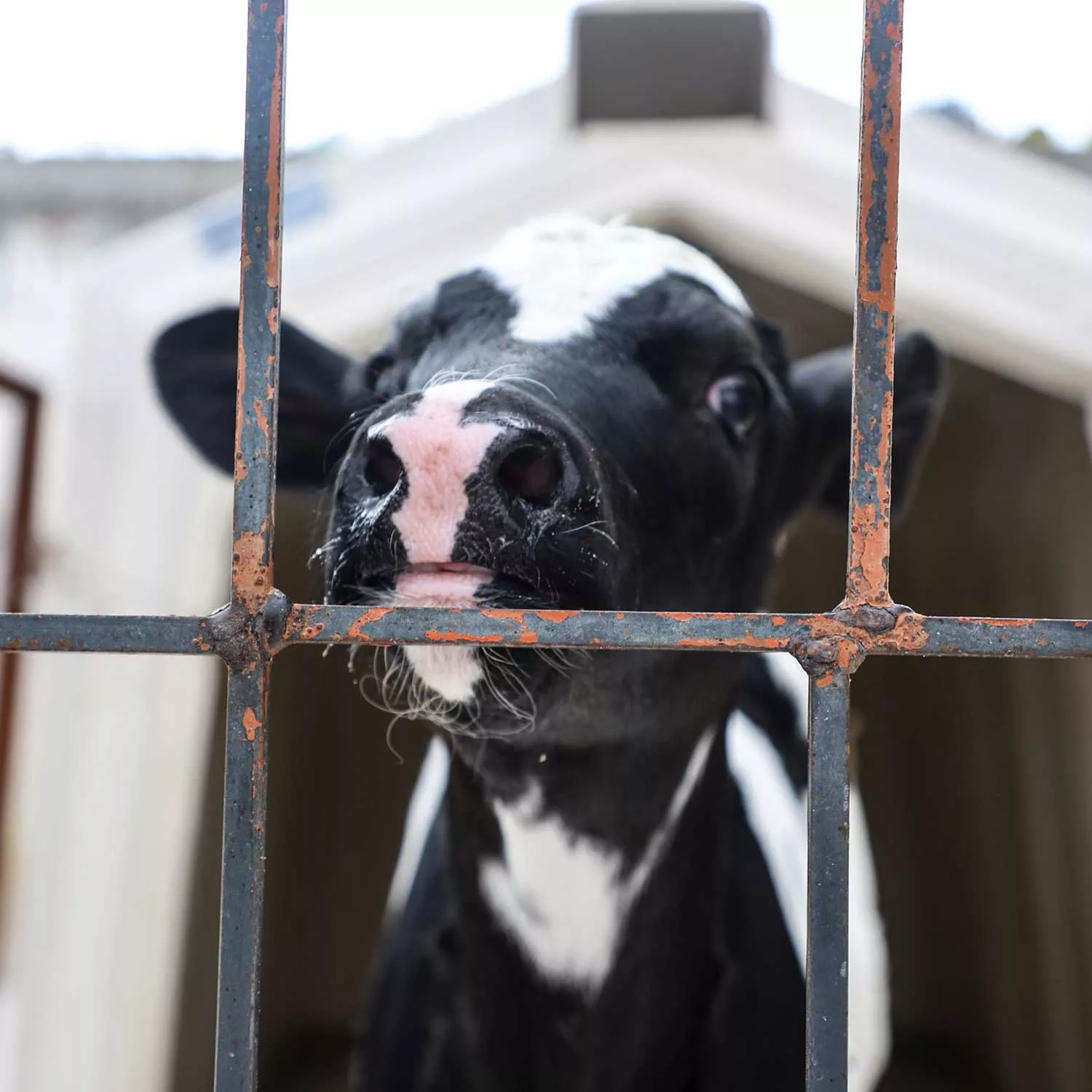end OF factory farming
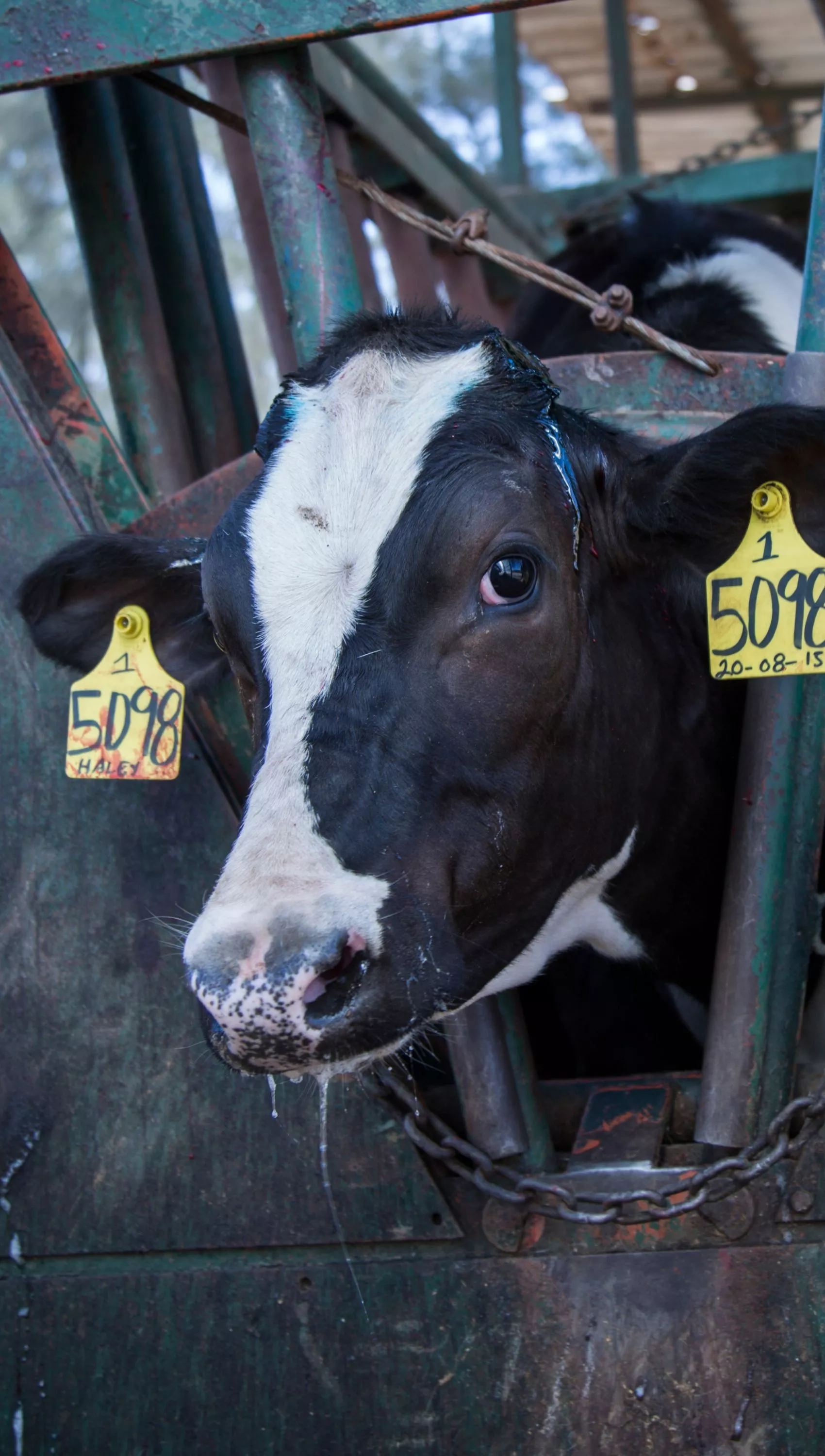
Your signature will support the message calling for the end of factory farming in the United States.


When you witness the horror that really happens behind closed doors and slaughterhouses to farm animals all over the world, it’s impossible not to be affected by it and to realize that we have to do something drastic to stop it.
Joaquin Phoenix
Activist and actor
THE REALITY OF FACTORY FARMING
Over 90% of farmed animals are kept in factory farms. If someone were to do any of these practices to the dogs or cats we share our homes with, they would be arrested and convicted for animal cruelty.
To reduce the costs of housing thousands of animals, farmers put pigs in cages barely larger than their own bodies, without space to turn around. They keep six or more hens in wire cages, each with an area similar to an iPad, where they won’t be able to spread their wings for their entire lives.
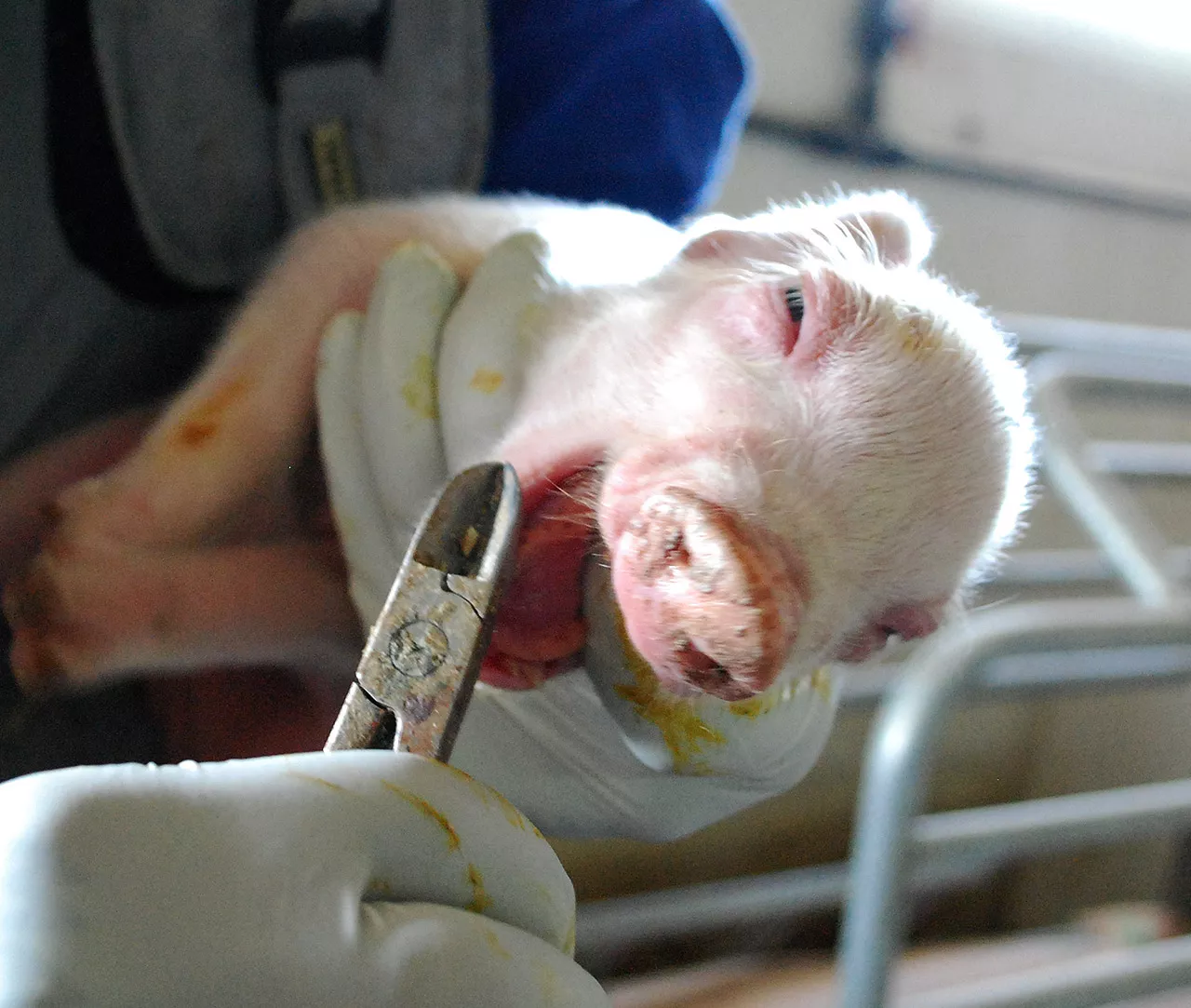
Factory farmers routinely engage in cruel practices such as mutilating animals without anesthesia to maximize profits and reduce losses. Pig farmers cut the tails and teeth of piglets at just a few days old without painkillers. They do this because the pigs will be so stressed in the fattening pens that they will bite each other. Instead of improving their living conditions, farmers choose to mutilate the animals. They cut the testicles of the piglets without pain killers because consumers, unaware of its consequences, like the flavor of meat from castrated pigs.
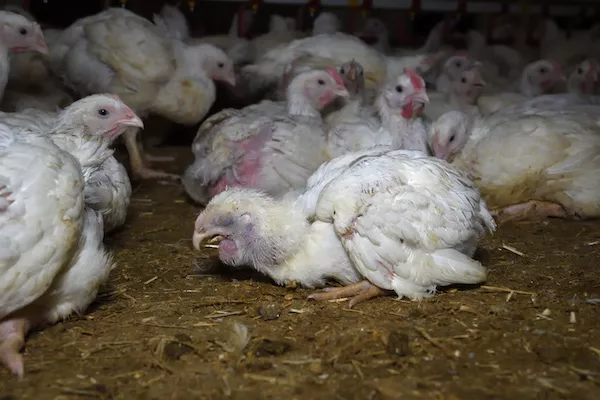
Chickens used for meat live with tens of thousands of other birds in windowless sheds with a floor of litter mixed with their feces and urine. In addition to intensive confinement, companies genetically select animals to produce as much as their bodies can take. So-called ‘fast-growing’ chickens gain so much weight at such an accelerated and unnatural rate that, just in 2021, over two hundred million chickens die of heart attacks and other problems only a few weeks after being born.
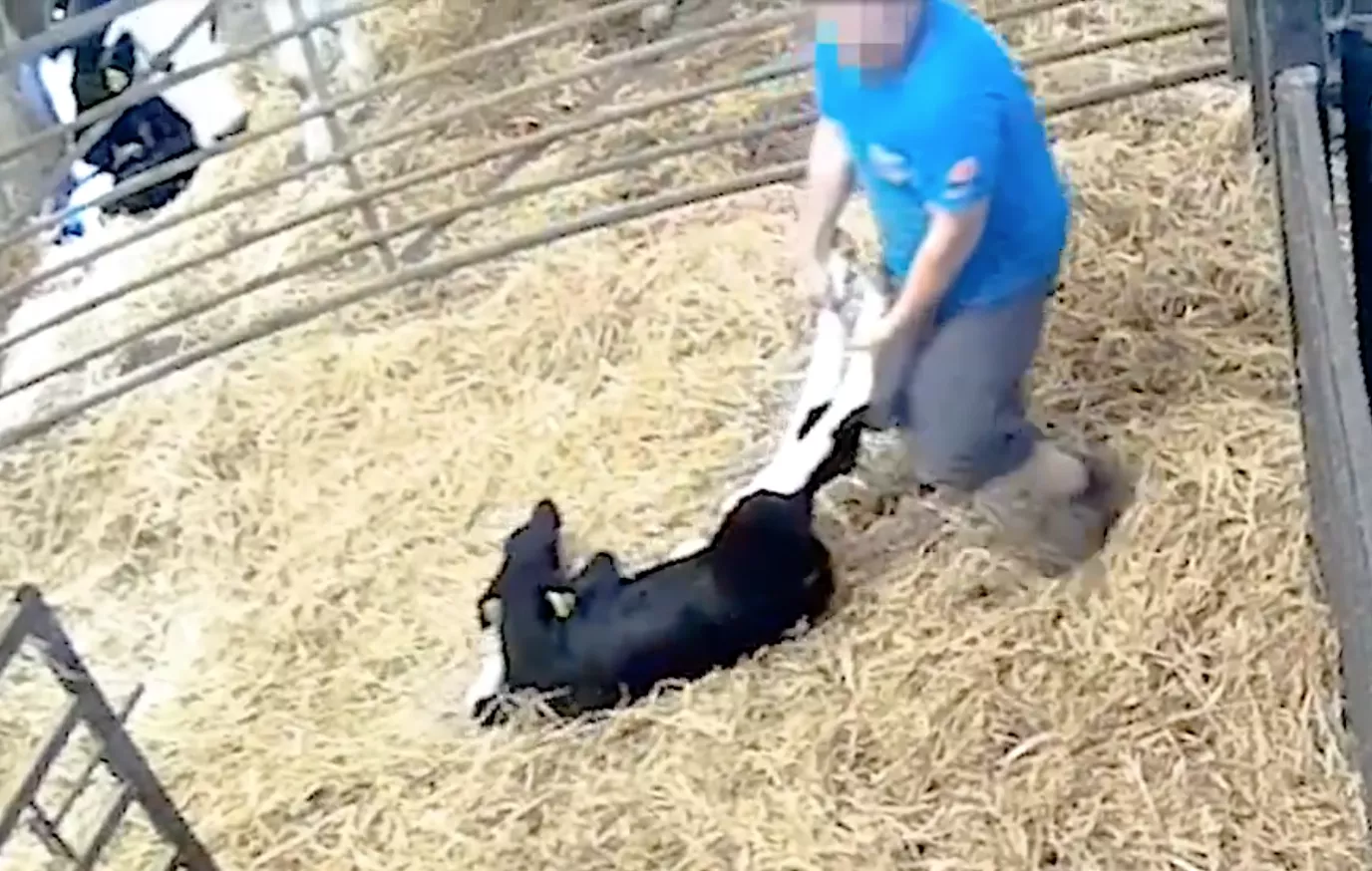
In order to obtain milk, dairy farmers artificially inseminate cows so they start to lactate. Once the calf is born, they will separate him from his mother within a couple of hours and put him alone in a hutch for months. He will never see his mother again. And when the horns start to grow, they will burn them. If the calf is a female, they will cut her tail and will use her, as they did with her mother, to take her milk in a repeated cycle of pregnancy, births, and separation from her babies that continues for years. Cows today produce more and more milk to the point that many suffer mastitis and osteoporosis and are considered “spent” and killed after just a few years.
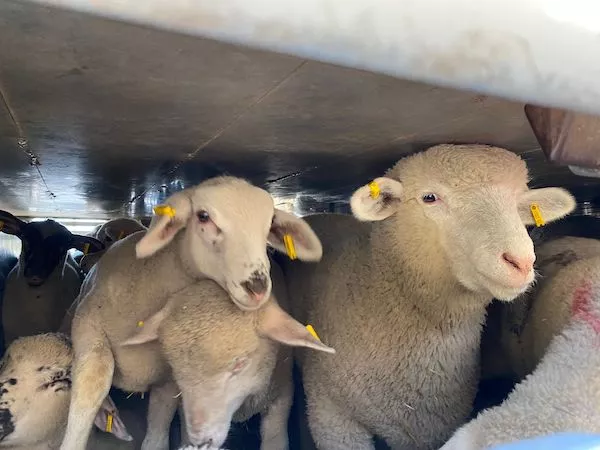
Our undercover investigations showed the cruel reality of the slaughter of lambs as young as one month old. They were fully-conscious as they were tied up and decapitated, and in full view of other animals awaiting slaughter. Other investigations show lambs and baby goats were kept in dark, cramped sheds, and sometimes still conscious and struggling while workers slit their throats.
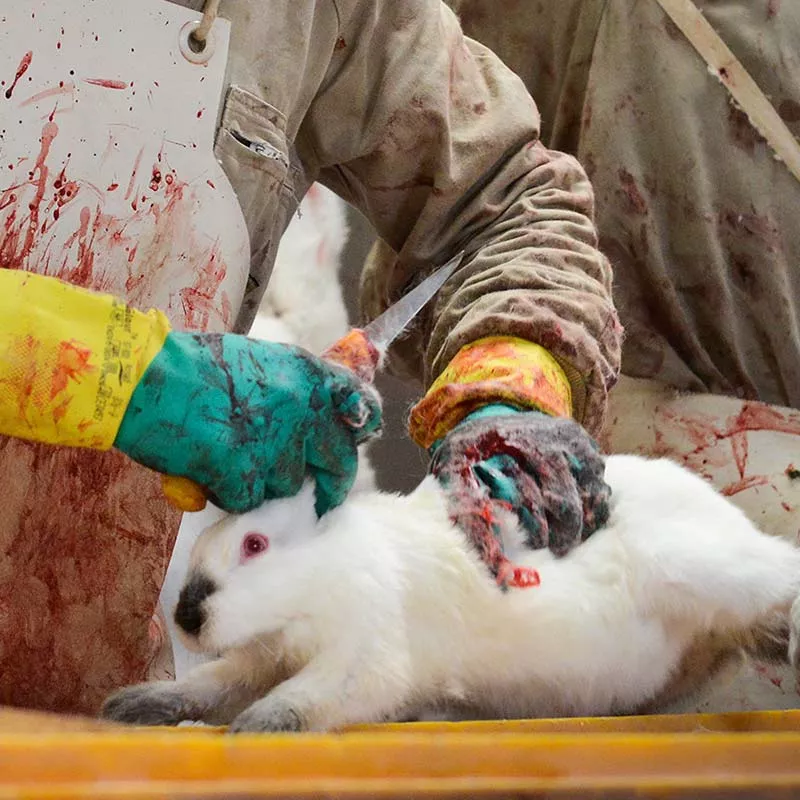
Animal Equality’s investigation into the rabbit meat industry exposed overcrowded cages, slaughter without stunning, and rabbits crying out before slaughter. Footage showed rabbits fully conscious as their throats were slit.

Our investigative team found numerous instances of animal abuse and suffering in fish farms—incidents that are in violation of existing state animal cruelty laws. For example, we documented catfish farms keeping them out of water for prolonged periods up to an hour before they were finally beheaded while conscious.
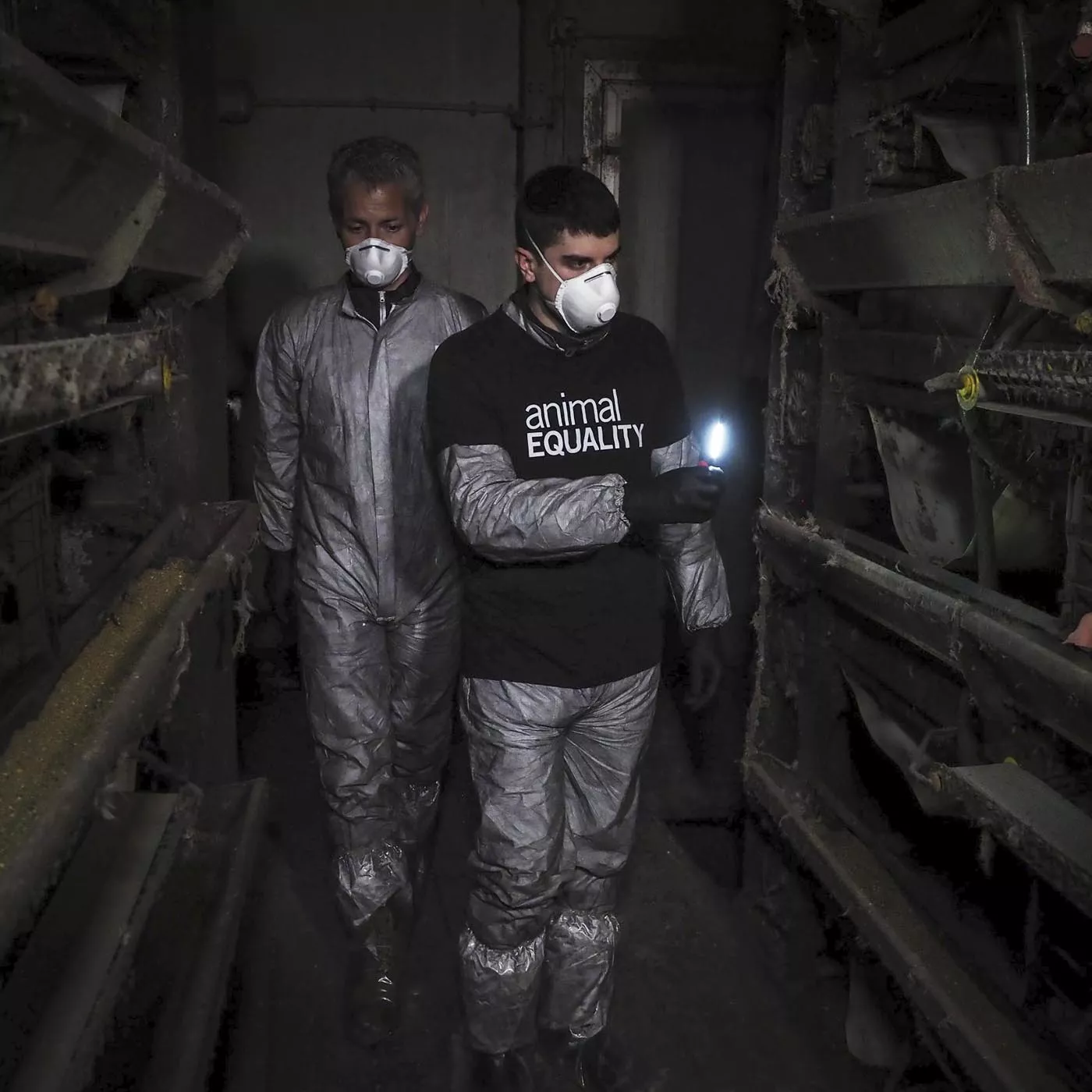
ANIMAL EQUALITY’S WORK TO END FACTORY FARMING
451.56 million estimated hens and chickens helped
11.61 million animals helped by our corporate work in 2024
9.21+ million animals impacted by our legal initiatives
2.01 million animals helped by our investigations in 2024
3.7 animals helped for every dollar
1,163+ facilities investigated
12,356 hours of volunteer work in 2024
142,183 volunteers around the world
141,779 people have taken action to end animal abuse
70 campaigns won
8 successful prosecutions of workers for cruelty to animals
4 facilities closed thanks to Animal Equality
801 stories generated in media in 2024
34,621,26 media views in 2024

